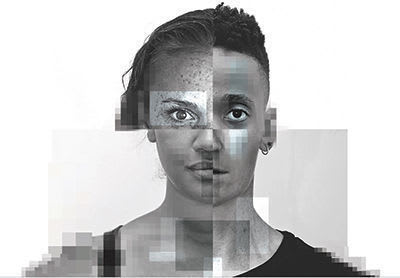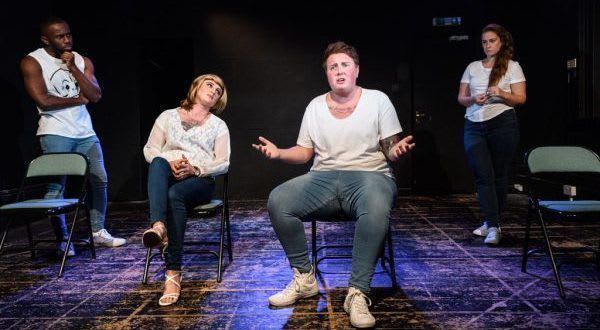Alexis Gregory’s play Safe gives us the stories of four LGBT youths who have experienced periods of homelessness. The actors use the actual words taken from a series of interviews. Only the names of those interviewed are changed.
The Albert Kennedy Trust has calculated that as many as 24% of homeless young people are LGBT. Not having any accommodation is only part of the problem. They may have suffered physical and verbal abuse from family and school.
They may arrive in what they imagine is a safer urban area already distressed. They will be vulnerable to exploitation by others and tempted to the numbing escape of alcohol and substance abuse.
The play switches back and forth between the characters, taking us chronologically from their early uncertainties about gender identity and sexual preference to the incidents that drove them into homelessness. Mostly, the stories are told as monologues spoken directly to the audience. Occasionally, one of the actors would become a character in the story and enter into a brief dialogue with the storyteller.
The character Jack, (Riley Carter Millington) born with the name Jennifer, changes his name first to Alex and then to Jack as he becomes increasingly certain that he wants to transition to a male identity. He regards himself as a man attracted to other men. His bewildered family don’t accept the changes and continue to address him as Jennifer.
The hostility of the reaction to Alicia’s (Laura Jayne Ayres) claim that she is a lesbian sets her on a road to alcoholism. At one point she is found slumped in a drunken stupor by the side of the road.
When Dylan’s (Kit Redstone) mother hears that he regards himself as gay, she punches him in the face. Driven from home, he changes his name to Alicia, and becomes "a rent boy".
Each character talks about difficult lives of abuse and isolation. However the fourth character Samuel (Michael Fatogun) is determinedly upbeat, constantly finding ways of coping with his Nigerian family who think he should be sent to Nigeria to be cured of homosexuality which they claim is a white man’s problem.
He admits to the audience that he did like a girl but quickly adds that he liked her brother better. The conflict with his parents prompts him to leave home and eventually to lose contact with them.
The cast give good solid performances with Michael Fatogun being particularly engaging. The sixty-minute show is thoughtful, believable and holds your attention. It does however lack dramatic tension being essentially an account of things past, but these things are important in drawing attention to the complicated difficulties of LGBT youth driven into homelessness.
If the present situation for LGBT youth isn’t bad enough, in April 2017 the government intend to make it worse by abolishing housing benefit for 18- to 21-year-olds in order to encourage them to remain with their families.
That should not have been what the Prime Minister meant in her recent Conservative Party conference speech when she borrowed many times the famous line of the American Civil Rights movement from a Sam Cooke song “A Change Is Gonna Come”.
The civil rights of young people to choose their gender and sexual identity needs more than a law which promises not to hunt them down and prosecute them. It needs a community that actively recognises, celebrates and defends their choice. Theresa May should be made to see this play before April.

